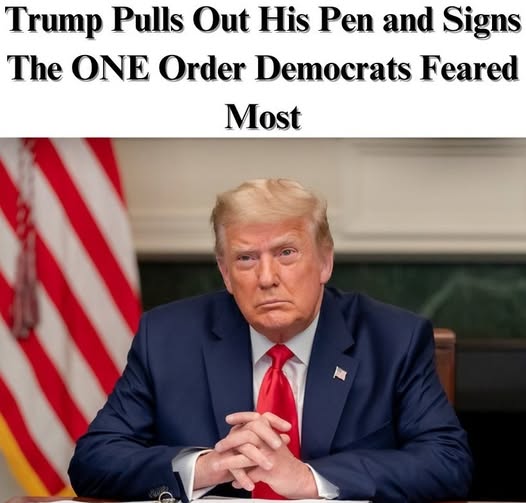Trump Grants Clemency to Imprisoned Pro-Life Activists, Sparking Fierce Debate In a bold and polarizing move, former President Donald Trump has issued a series of executive orders, including a highly controversial clemency measure for pro-life activists who were imprisoned under President Biden’s administration.
This decision has reignited deep political divisions, with Trump’s supporters hailing it as a victory for free speech and religious freedom, while his critics argue that it undermines the justice system and sets a dangerous precedent.
A Campaign Promise Fulfilled—or a Political Power Play?
For Trump’s staunchest supporters, this executive action is seen as a fulfillment of his campaign promises—a decisive stand against what he and his allies have long described as “politically motivated” prosecutions.
Many within conservative and pro-life circles believe these activists were wrongfully targeted for peacefully protesting against abortion, and they view Trump’s clemency as a rightful correction of an unjust punishment.
However, critics see it very differently.
Opponents, including Democratic leaders and civil rights groups, argue that Trump is using the justice system as a political tool—rewarding those who align with his ideology while eroding the rule of law.
One major concern among detractors? That this sets a precedent where individuals may believe they can break laws under the assumption that a political ally will eventually grant them a pardon.
Trump’s Broader Battle Against “Politicized” Prosecutions
Trump’s decision to intervene in these cases aligns with his broader agenda—challenging what he perceives as politically motivated prosecutions and ideological discrimination.
Since leaving office, Trump has repeatedly criticized federal agencies, accusing them of targeting conservatives while allowing progressives to protest without consequence.
His supporters argue that many pro-life activists were convicted for peacefully demonstrating, while other protest movements—such as certain pro-choice rallies and progressive protests—have not faced the same level of scrutiny or legal repercussions.
By granting clemency, Trump is making a bold statement:
He is willing to use executive power to correct what he sees as an injustice, even if it fuels controversy.
The Heated Fallout: What Happens Next?
This executive order has intensified political tensions, with some legal experts questioning whether Trump’s intervention could trigger further challenges to judicial independence.
Democratic lawmakers have vowed to push back, warning that this move sends the wrong message—potentially encouraging activists of all causes to push legal boundaries in hopes of securing future clemency.
Meanwhile, pro-life advocates see this as a turning point—proof that their movement has powerful political backing and that future conservative administrations may continue to shield them from legal repercussions.
One thing is certain: Trump’s clemency order has reignited a fierce national debate—not just about abortion rights, but about the limits of presidential power and the role of the justice system in political conflicts.
As the dust settles, one critical question remains:
Is this a move toward justice—or a dangerous precedent for selective law enforcement?